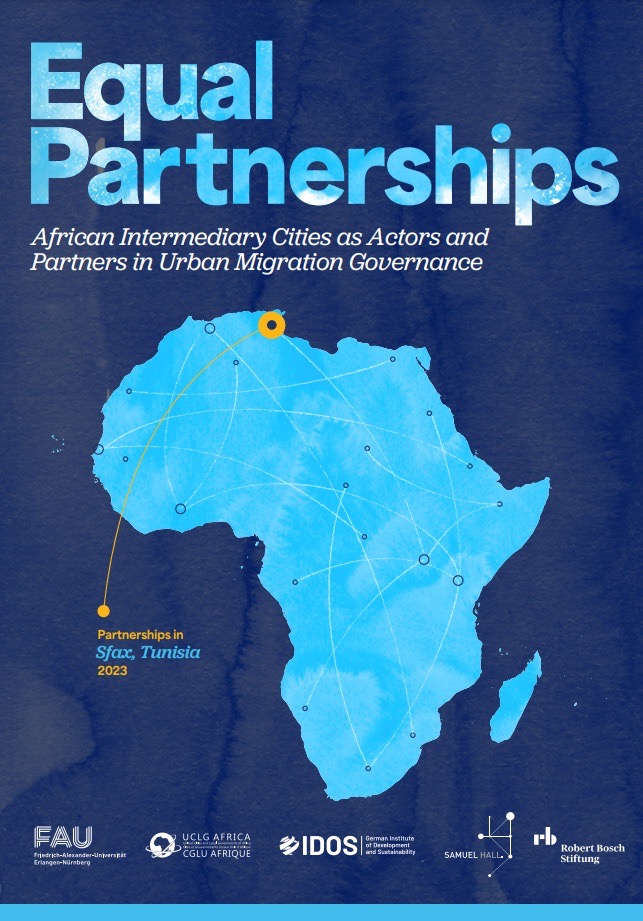Equal Partnerships – African Intermediary Cities as Actors and Partners in Urban Migration Governance
Partnerships in Sfax, Tunisia
2023
Hervé Nicolle, Daniel Provost
Sfax is Tunisia’s second-largest city. Situated at the Mediterranean coast, the city represents an important economic center connecting the north and south of the country. Sfax is home to around 615,000 inhabitants with approximately 950,000 inhabitants living in the wider agglomeration. The city experiences rural-urban, inter-regional, and international mixed migration. The increasingly difficult socio-economic situation, financial constraints, gender dynamics, the absence of a national migration strategy as well as the politicization of mobility issues between North Africa and Europe, result in unique implications on migration dynamics in Sfax. The municipality participates in the international Mediterranean City-to-City Migration network (MC2CM) and aims to address questions of migration at the local level. In addition, a broad range of other actors engage on migration and displacement in direct or indirect ways, including migrant associations, national agencies, local and national NGOs, Sfax university, and international organizations. To create an overview of activities, partnerships, and cooperation gaps, the Equal Partnerships project developed participatory field research and organized a local workshop with the support of the municipality of Sfax in January and February 2023. The stakeholder mapping shows that civil society and international actors have created a referral and coordination system on migration issues. Representatives of national agencies and the municipality participate at times in these meetings and the municipality has worked in partnership with migrant associations. However, the local scope for action remains very limited in the absence of local-national dialogues. The case study situates Sfax in the national and regional migration context, presents the outcomes of the stakeholder mapping, identifies opportunities and challenges of cooperative action on migration and concludes with concrete policy recommendations for strengthening multi-stakeholder action on urban migration and displacement.
